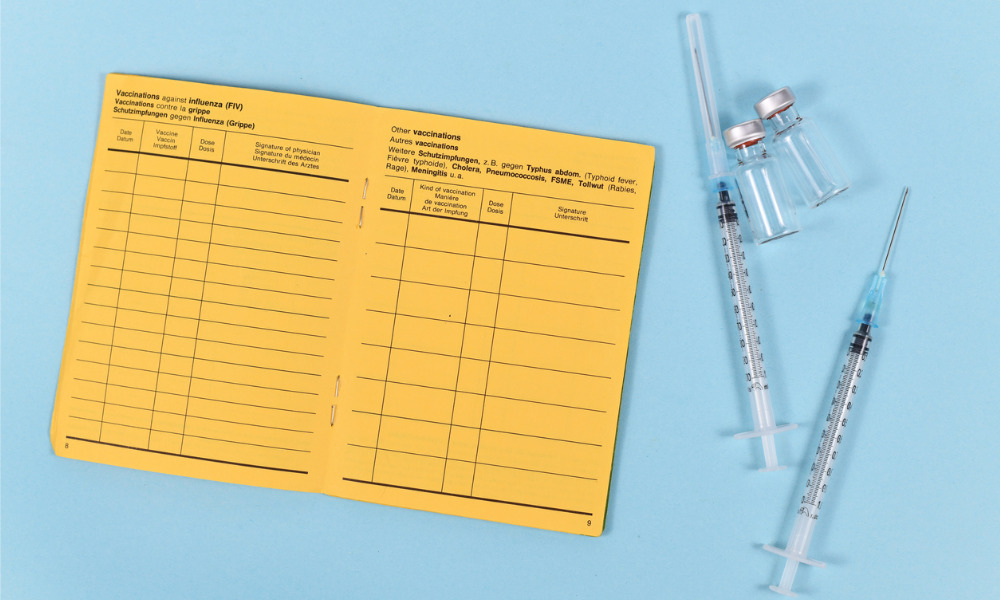
The deadline has passed for health care workers at facilities participating in Medicare and Medicaid to be fully vaccinated

The deadline has passed for the Centers for Medicare & Medicaid Services (CMS) vaccine mandate, which affects 10.4 million health care workers at 76,000 medical facilities in the United States.
That means health care providers at facilities that participate in Medicare and Medicaid must ensure their employees are fully vaccinated or have been granted approved medical or religious exemptions. The Feb. 28 deadline applied to providers in the District of Columbia, the U.S. territories and 25 states, including California, according to Becker’s Hospital Review.
Meanwhile, health care facilities in states throughout the South and Midwest have until March 15 to ensure their employees are fully vaccinated or exempt. Health care facilities in Texas have until March 21.
Read more: What HR needs to know about vaccine mandate for health care workers
In January, the Supreme Court upheld President Joe Biden’s CMS vaccine mandate by a 5-4 vote. Only justices Clarence Thomas and Samuel Alito noted their dissent. “The challenges posed by a global pandemic do not allow a federal agency to exercise power that Congress has not conferred upon it. At the same time, such unprecedented circumstances provide no grounds for limiting the exercise of authorities the agency has long been recognized to have,” the justices wrote in an unsigned opinion, saying the “latter principle governs” in the health care cases.
Unlike the proposed private employer mandate, which the Supreme Court struck down, the CMS mandate doesn’t allow testing options in lieu of vaccination. Health care workers in California have to go one step further – they have to get their booster shot by March 1, as per the state mandate. New York, New Jersey, Connecticut and New Mexico have all enacted similar mandates.
It’s up to HR leaders to track and document employees’ vaccination statuses, process and track exemptions and then take additional safety precautions for those who are exempt. “HR leaders need to stay up to date with the ever-changing requirements for COVID-19 in the workplace and communicate that information throughout the company,” said Dawn Adams, president of HResults, a Hartland, WI-based HR consulting firm.
Adams took part in a recent webinar hosted by Calcium, a Chicago-based digital health analytics and data management company, on best practices for managing vaccine documentation and tracking requirements. Calcium’s clients include Planned Parenthood of Maryland, HealthFirst Family Care Center, Berkshire Farm Center and Services for Youth and other health care service providers.
CMS plans to work directly with state survey agencies to regularly review compliance of the mandate. Adams expects the agencies to conduct on-site reviews, either during the recertification process or as the result of a complaint from an employee. “Failing to comply with the requirements could result in your company losing funding and/or recertification,” Adams said.
She also stressed that HR isn’t required to accommodate an exemption request of someone solely trying to evade vaccination. In order for a medical exemption to be approved, the documentation must be provided by the employee; signed by a licensed practitioner in which vaccination falls within the scope of their practice; specify which of the vaccines the employee isn’t able to withstand along with recognized clinical reasons; and include a statement by the practitioner.
The requirements of the religious exemption are less cut and dry. An employee needs to explain their sincerely held religious belief, practice or observance and make the connection for why said belief justifies not being vaccinated.